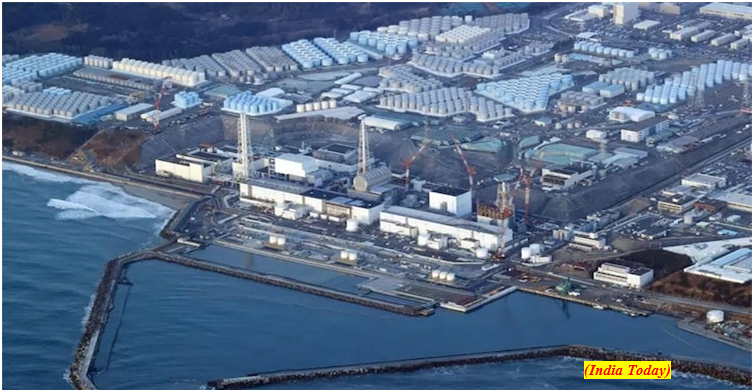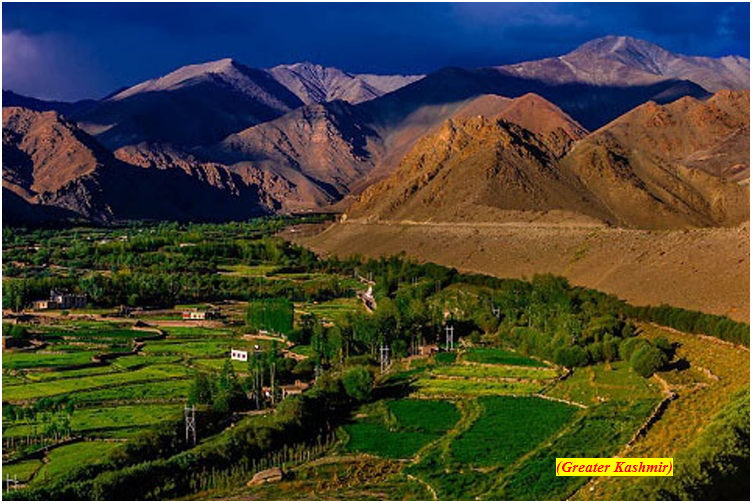Japan reverts to max nuclear power to tackle energy climate (GS Paper 3, Environment)

Why in news?
- Japan has adopted a new policy promoting greater use of nuclear energy to ensure a stable power supply amid global fuel shortages and to reduce carbon emissions, a major reversal of its phase-out plan since the Fukushima crisis.
Background:
- Anti-nuclear sentiment and safety concerns rose sharply in Japan after the 2011 Fukushima disaster, and restart approvals have since come slowly under stricter safety standards.
- Utility companies have applied for restarts at 27 reactors in the past decade. Seventeen have passed safety checks and only 10 have resumed operations. That was in line with Japan’s earlier plan to phase out nuclear energy by 2030.
Key Highlights:
- The new policy says nuclear power provides stable output and serves “an important role as a carbon-free baseload energy source in achieving supply stability and carbon neutrality” and pledges to “sustain use of nuclear power into the future.”
- It has drafted a plan to allow extensions every 10 years for reactors after 30 years of operation, while also permitting utilities to subtract offline periods in calculating reactors’ operational life beyond the current 60-year limit.
- Japan will also push for the development and construction of “next-generation innovative reactors” with safer features to replace about 20 reactors now set for decommissioning.
Focus on renewable energy:
- The adoption of the new policy comes less than four months after Prime Minister launched the “GX (Green Transformation) Implementation Council” of outside experts and ministers to “consider all options” to compile a new policy that addresses global fuel shortages amid Russia’s war on Ukraine and seeks to achieve carbon neutrality by 2050.
- The council also adopted plans to make renewables Japan’s main energy source and further promote hydrogen and ammonia as well as off-shore wind power and other forms of energy to promote decarbonization, supply resilience and economic security.
Way Forward:
- Nuclear energy accounts for less than 7% of Japan’s energy supply, and achieving the government’s goal of raising its share to 20-22% by fiscal 2030.
- New safety inspection rules still need to be compiled into law and approved by Parliament.
What do the J&K Land Grants Rules 2022 entail
(GS Paper 2, Governance)
Why in news?
- The J&K Lieutenant Governor’s administration, recently notified fresh land rules under J&K Land Grant Rules-2022 and replaced the J&K Land Grants Rules-1960, which dealt with the special rules to grant government land on lease in erstwhile State of J&K.

Background:
- Under the previous rules, prime locations such as Srinagar, Jammu, Gulmarg and Pahalgam were opened up for construction of hotels, commercial structures and residential buildings in the past.
- These land laws were considered as the backbone of J&K’s upper middle class and allowed a new chain of hotels and commercial structures to come up in prime locations, including places like Pahalgam and Gulmarg over the years.
- J&K L-G, however, argued that amendments were needed because the previous land laws were “regressive”. He also targeted the present land holders as one “who just paid ₹5 to enjoy profit from ₹100 crore property”. However, local land holders see the move as one which has opened the gateway “to outsiders to buy prime properties in J&K”.
What do new land laws entail?
- According to the new land laws, the leases of current land owners will not be extended in case of their lease expiry. It reads that all leases, except the subsisting or expired residential leases, expired or determined prior to the coming into force of these rules or issued under these rules shall not be renewed and shall stand determined.
- Unlike the previous up to 99 years of lease, the lease period has been reduced to 40 years. The government has asked the outgoing lease holders to evict properties or else face evictions under the new rules.
- However, the current land holders termed these rules “exclusive to J&K where the first right to lease-holders has not been granted and revised rates negotiated”.
What is the L-G administration’s plan for lease now?
- An expert committee will enlist all properties where lease had ended. It will be e-auctioned afresh. The rules open bidding to “any person legally competent under Section 11 of the Indian Contract Act, 1872.”
- These rules deem a person or an entity in default of Government Revenue accrued to the government under J&K Land Grant Act, 1960 or Government convicted under Prevention of Money Laundering Act, 2002 shall not be eligible for participation in the auction.
- According to now-repealed land laws, no such land shall be granted on lease to the person, who is not a permanent residence of the State; except where the Government, for the reasons to be recorded, relax this restriction in the interest of industrial or commercial development or in the favour of a registered charitable society.
Who all are eligible for lease rights in J&K after amendments?
- The L-G administration has diversified the use of land on lease to education, healthcare, agriculture, tourism, skill development and development of traditional art, craft, culture and languages.
- The land could be leased for hydro-electric projects, stadiums, playgrounds, gymnasiums or other recreational purposes.
- It also included provisions for self-employment or for housing purposes of ex-servicemen, war widows and the families of martyrs, one who has sacrificed his life in the line of duty. In a first, the land could also be used for facilities of migrant workers, buildings and other construction workers.
SEBI is phasing out the stock exchange route and how it impacts shareholders
(GS Paper 3, Economy)
Why in news?
- The Securities and Exchange Board of India (SEBI) has decided to phase out the buyback of shares of listed companies through the exchange route.
- The regulator favours the repurchase of shares by companies from shareholders on a proportionate basis through the tender offer because that is considered more equitable, transparent, and fair.

What is the stock exchange route?
- Under the stock exchange route, a company can buy back shares only on the stock exchanges having nationwide trading terminals.
- The buyback of shares is made only through the order-matching mechanism. In this method, the promoters, or persons in control of a company are not allowed to participate.
- Paytm, which witnessed a 76 per cent crash in share prices after its IPO last year, recently decided to opt for the open market route through the stock exchanges method for share buyback, which is to be completed within a maximum period of 6 months.
- While TCS, which came out with share buybacks recently, used the tender route, Infosys opted for the stock exchange method for its recent buyback.
Why is SEBI against the exchange route?
When will the exchange route be phased out?
- As recommended by the Keki Mistry committee, SEBI will phase out buyback through the stock exchange route with effect from April 1, 2025.
- Many experts termed SEBI’s decision to phase out stock buyback through the exchange route as positive as it will give all the shareholders an opportunity to participate.
- The aim of this move is to make the buyback process more robust, efficient, transparent and shareholder-friendly.
What is buyback via tender offer?
- A tender offer means an offer by a company to buy back its own shares or other specified securities through a letter of offer from the holders of the shares or other specified securities of the company.
- The buyback is done on a proportionate basis as per the buyback ratio, and the additional shares tendered over and above the prescribed buyback ratio get accepted if there are any unaccepted shares. It is a fixed-price buyback offer.
What are the changes made in the tender system?
- SEBI has reduced the timeline for completion of the buyback through a tender offer by 18 days, by removing the requirement of filing a draft letter of offer with it.
- It also permitted an upward revision of the buyback price until one working day prior to the record date.
What is share buyback?
- When a listed company buys its own shares from the existing shareholders, it is known as a share buyback, which is also called share repurchase.
- The process reduces the number of outstanding shares in the open market over a period which can lead to better valuation and earnings per share (EPS).
- Currently, a company can buy back its shares from shareholders on a proportionate basis through a tender offer, or from the open market via a book-building process, or from the odd-lot holders.
- The maximum limit of any buyback is 25 per cent or less of the aggregate of paid-up capital and free reserves of a company.
How will shareholders be benefitted?
- The entire process of buyback via stock markets may or may not have benefitted smaller investors as they may not have known when the buyback was taking place.
- With the tender offer process being the only process going forward, all shareholders would now be provided with an opportunity to participate in the buyback. Especially as tender offers also require a reservation for small shareholders.




